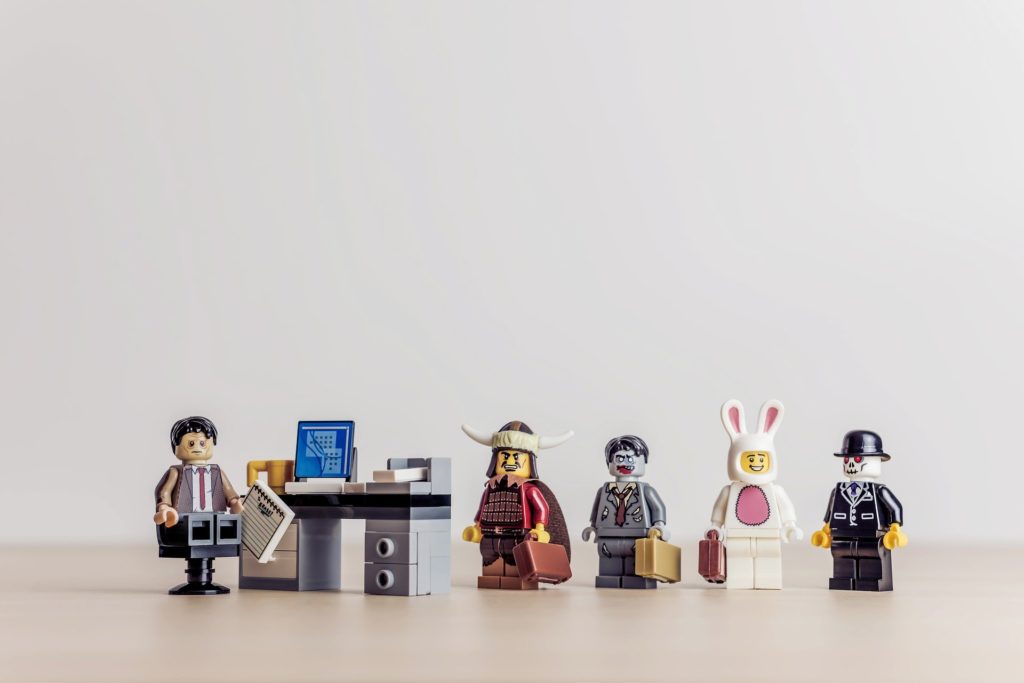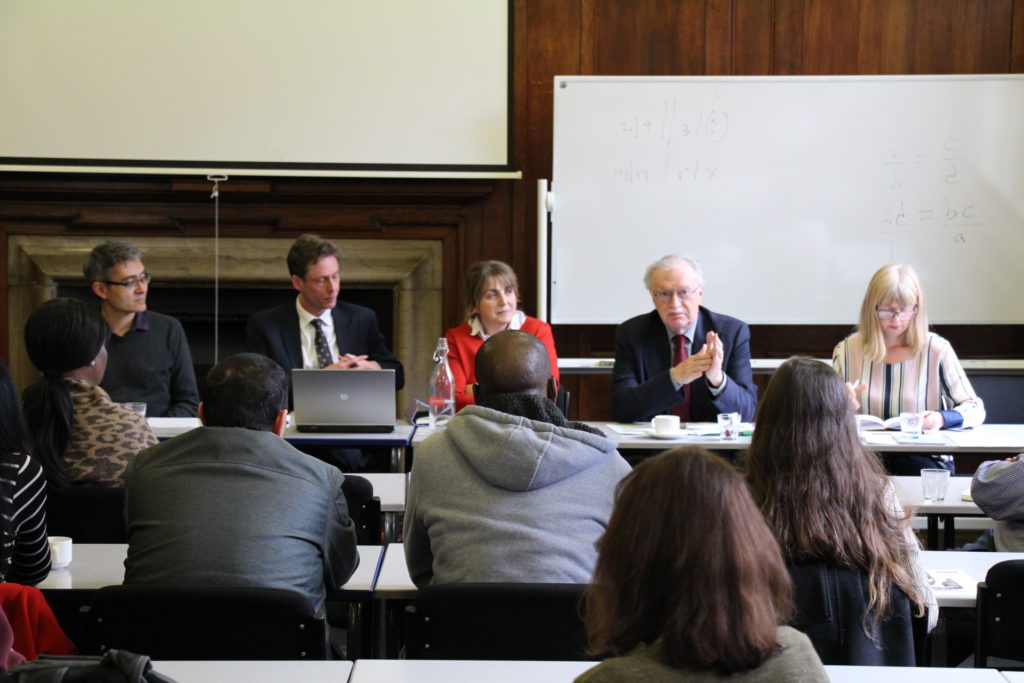In our third collaborative event between Birkbeck’s Department of Management and Essex Business School, we explored the impact of the COVID-19 pandemic on Knowledge Intensive Business Services.

The COVID-19 crisis has forced many organisations to transition to remote working. How has this impacted Knowledge Intensive Business Services (KIBS), which rely on in-person interaction and team working to deliver their services?
In a joint event hosted by Birkbeck’s Department of Management and Essex Business School, University of Essex, Professors Ian Miles (Alliance Manchester Business School, University of Manchester) and David Doloreux (HEC Montréal) outlined their view of the post-pandemic new normal for KIBS.
As Chair, Dr Muthu De Silva, Director of Research in Birkbeck’s Department of Management, introduced the session, which began with discussion from Professor David Doloreux on KIBS and their key characteristics. KIBS are services which involve economic activities which are intended to result in the creation, accumulation or dissemination of knowledge. The KIBS sector includes establishments whose primary activities depend on human capital, knowledge and skills. This inevitably involves close interaction between KIBS and their clients in order to create and disseminate knowledge.
Scholars have identified three broad classifications of KIBS:
- Social and professional services (P-KIBS)
- Science and technology (T-KIBS)
- Cultural and creative services (C-KIBS)
Having conducted a literature review into the key research streams relating to KIBS, Doloreux noted that very few studies prior to the pandemic have dealt with digital services and their capacity for innovation, so webinars like this address an important and under-researched area of the field.
Regarding how the pandemic has affected the macro- and micro-pictures for KIBS innovation, Professor Doloreux made the following observations:
- There will be an evolution of demand on KIBS innovation, with greater opportunities related to big data, analytics and AI.
- COVID-19 may result in a widening gap between different types of KIBS: P-KIBS may be able to offer more innovative services that satisfy demands, whereas C-KIBS have suffered from drastically reduced demand due to COVID-19.
- We will need to rethink the location of activity of KIBS and where innovation occurs.
As a geographer, Professor Doloreux also raised the following key questions:
- How can we geolocalise innovation in KIBS?
- How do KIBS innovate without face-to-face and frequent interactions with clients?
- What are the dynamics and implications of hybrid models and more digital service production on KIBS innovation?
- What is the geography of this connection?
Regarding the long-term impact of the pandemic on KIBS, there are three possible scenarios that need to be empirically analysed:
- The Revolution: COVID-19 has radically modified innovation and business models in KIBS.
- Booster: COVID-19 has accelerated processes and practices that were already in place, e.g the hybrid model.
- Weak game changer: changes prompted by COVID-19 have a weak impact on KIBS practice and products.
The second half of this webinar invited Professor Ian Miles to respond to these observations. Having conducted research into KIBS throughout the pandemic, Professor Miles observed how the pandemic impacted KIBS in real time. He highlighted three elements of the crisis that were shaping business conditions: epidemiology, policy responses and socioeconomic impacts.
In terms of patterns of demands for KIBS, the picture is very mixed. There was a sudden drop in demand for KIBS in 2019/20, three times that seen in the 2008 recession, in line with the drop in demand across the economy. Conversely, some KIBS sectors have been in increased demand and we have seen new demands related to new business problems. Among these ‘winners’ are some portions of research and development services (including the clinical trials industry) which have had to work under new constraints associated with the pandemic, of Information Technology and computer services (which were often quite capable of shifting to remote working), and of professional services like accountancy and legal services (where new client problems are arising, but whose ways of working have been challenged).
Professor Miles also discussed how KIBS have confronted challenges during the pandemic, including in particular restrictions on face-to-face interaction. This impacts on the establishment and maintenance of trust, and on the exchange of tacit knowledge, both in relations with clients, and in internal collaboration and team-building. Much effort is underway to improve videoconferencing systems and practices.
For Professor Miles, there would likely be a shift between the immediate impact of the pandemic, which has seen the acceleration of digitisation activities and the stalling of long-term digital reengineering projects such as AI and data analytics, and the long-term response, which may see these efforts reinstated as organisations push the limitations of virtual communications. Professor Miles concluded by anticipating an upsurge of innovation in the future, as organisations moved on from the ‘forced rapid innovation’ of the immediate crisis.
The presentations were followed by discussion from the audience, which featured a diverse mix of policy makers, academics and early career researchers, and a vote of thanks from Professor Suma Athreye, Essex Business School.
A recording of this event is available to watch on YouTube. We look forward to future collaborations as we continue to explore the impact of the pandemic on innovation, knowledge creation and dissemination.
Further Information:



